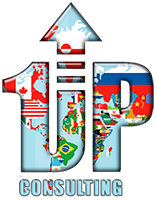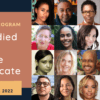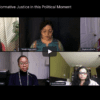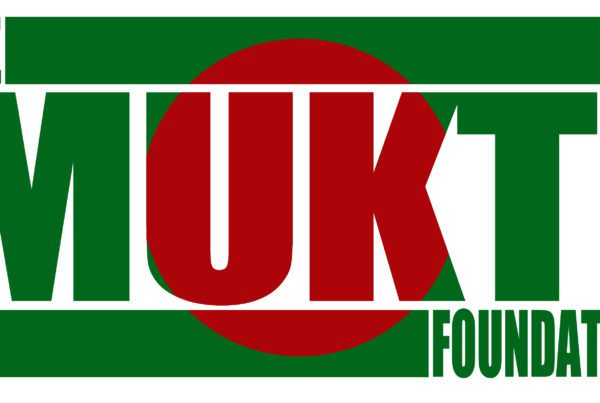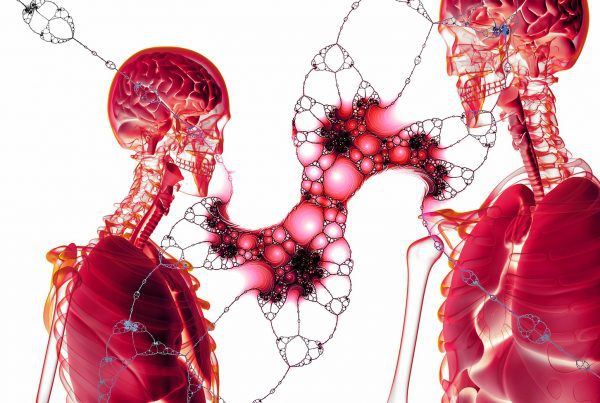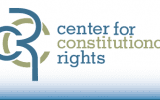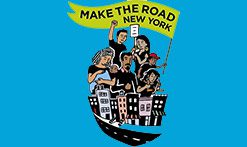surviving + thriving
(re)focus
let there be no more doubt… the white supremacy agenda is in full effect, out in the open, and in our faces. what we all need to recognize is that there are #NoSidelines.
while our work seeks to uplift and change the material conditions for ourselves and our people, ultimately seeking to remove the “otherness” label all disenfranchised and people of colour are identified with, we continue to move the focus from ourselves and our wellbeing to the sidelines of our lives and work, with the false perception and understanding, that the work actually needs us to do this.
no. no more.
it’s time to (re)focus.
#NoSidelines is not just about where one falls on any given issue, either by virtue of action or inaction. it speaks to a greater struggle of centering ourselves in our work instead of the capitalistic philosophy of solely centering our labour at the expense of all things. this is the default of too many of us and it simply robs us of choice and power.
the expression of our deepest beliefs, values, and principles in what we say, do, and how we interact with ourselves and each other does not require self-sacrifice and masochistic behavior to be effective and impactful. rather, efficiency and impact is a result of centering ourselves and our wellbeing in what we do because it places our focus on our humanity so it acutely aligns with the work we do in the world. adding more suffering to the existing suffering of our communities is not a methodology of healing, so why do it?
in organizing, effective and authentic community work always keeps the focus on those directly affected, even when the external pressure and the power of our opponents are overwhelming. adopting the most impactful philosophies and methodologies of organizing in how we focus ourselves, our wellbeing, and each other will serve as a grounding in this offering of strategies for self-care.
getting real about self-care
like most things, the more something becomes well-known, the more its true meaning and purpose becomes skewed and watered-down. no real judgement here, just a move 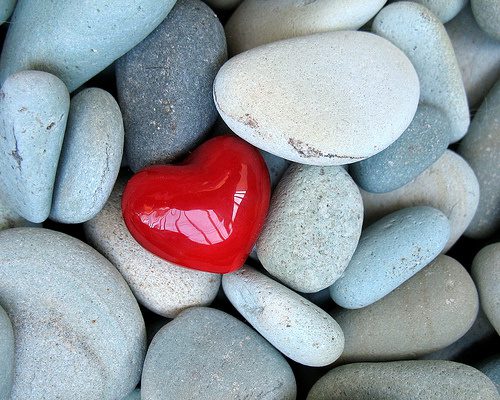 towards some aligned understanding of how self-care is defined for the purposes of this guide.
towards some aligned understanding of how self-care is defined for the purposes of this guide.
over the last couple of years, self-care has shown up as a hashtag on posts sharing the rare occasions folks have gone to watch a movie, had dinner with friends, or when they have indulged in a mani-pedi. all good… these activities are great and necessary. what they are not, as a stand-alone event, is self-care.
self-care is a practice. a regular practice. an intentional activity we engage in that is grounded in purpose that actually results in something real and measurable. what the results and impact are, is wholly up to you to define.
for this guide and for these times, self-care is an intentional, regular practice that seeks to fortify the individual.
reset + fortify
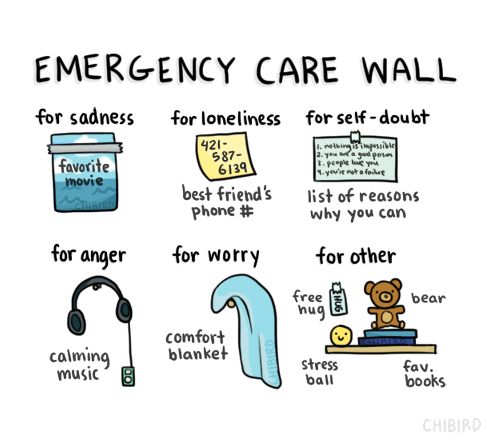 whether you are on the frontlines and/or directly affected by the growing attacks on disenfranchised communities and people of colour, if you hold true the need for social, political, economic, and environmental equity and liberation for all peoples regardless of race, class, sexuality, or gender, you realise and believe that an attack on one of us is an attack on all of us. while the real-life impact varies, the trauma and hurt on our somas is real whether we are cognizant of it or not. all of us require a daily reset that allows us to (re)connect to our deeper purpose and that which brings us joy and meaning to our lives.
whether you are on the frontlines and/or directly affected by the growing attacks on disenfranchised communities and people of colour, if you hold true the need for social, political, economic, and environmental equity and liberation for all peoples regardless of race, class, sexuality, or gender, you realise and believe that an attack on one of us is an attack on all of us. while the real-life impact varies, the trauma and hurt on our somas is real whether we are cognizant of it or not. all of us require a daily reset that allows us to (re)connect to our deeper purpose and that which brings us joy and meaning to our lives.
here are some pro-tips on resetting and fortifying ourselves for the long road ahead:
- identify + lean into choice: everything we do and do not do is a choice even in urgency and times where we feel like we “have to” take action. by orienting to actions as clear, intentional choice, we empower ourselves rather than become subject to what we feel must be done.
- center yourself + your leadership: if we can hold ourselves in the center of gravity for what we do, we can uphold our humanity and dignity rather than the work itself. doing this is more aligned with the kind of world we are working to create.
- it’s a marathon not a sprint: meaningful, long-lasting change takes time to break the threshold of current societal patterns and be sustained towards collective embodiment. no matter how much we work or how much we sacrifice, we will not reach our goals in the short term. we must fortify ourselves for the long haul and prevent burnout.
- lead by example + inspire grounded action: energy is contagious… cross-species contagious. the more grounded and centered you are, the more you will inspire others, from your mere presence. if you desire others to cultivate their leadership to be more balanced and mindful, it’s only logical that you chose to do it yourself.
- resets are necessary: like a reboot for a frozen computer or device, resets are necessary to move forward and inherently entails a risk or a letting go of something that may be hard to detach from. each of us need a daily reset to re-energize and connect to our deeper purpose, love, and joy.
- intention + commitment: harnessing your intention to stay committed to yourself, your humanity, your personal leadership, will be a critical way in which you can continuously stay in choice and in your power.
self-care do's
theoretical shit is all nice and what not, but how do you actually practice self-care? sometimes we need some hints or a few practices to begin with to get the practice joints juiced and flowing. here are a few practices that are great launching pads for easily cultivating daily self-care practices:
- 5-minute meditation– meditation is scientifically proven to sharpen your focus and increase wellbeing as well as dramatically enhance your mood. five minutes a day, regularly, is all you need to reap the vast benefits of this powerful mindfulness practice. check out this how-to video, “mind the gap”.
- journaling– a daily practice that is aimed at expressing the emotions that have come up during the day. a practice that allows you to track and release the moments and events from the day, including interactions with people, so you may release it from your system and emerge from the day without any extra baggage. journaling can be in the form of writing, video, audio, and/or art.
- movement-based exercise: move your body! take a walk or a run or spend 15 minutes moving to your fave music. trauma lives in the body and you cannot think or will it out of your system. you must move to expel it (among many other things).
- stay hydrated + well fed: when emotions are generated in our systems, our bodies are quick to process it and then seeks to expel it with some sort of a release. our cultures continue to shape us to ignore, overlook, and/or numb ourselves out from this releasing process, leaving toxins in our bodies. drink a lot of water and pee those toxins out! eat on a schedule and eat often. set yourself up to succeed and set a timer for meals. your body cannot survive without food and water.
- siesta time: guess what? just like food and water, you need sleep to survive. a 10-minute power nap (30 minutes is ideal) can save lives, beginning with your own. too many folks are suffering from sleepless nights and especially for those missing sleep, carving out a time for siesta will be vital to the mind, body, and spirit. set a daily alarm for 30 minutes between the hours of 1:00 to 4:00pm and get your nap on.
- in the moment: when things pile up and you are on the brink or deep in the midst of a trigger, take 3-5 deep breaths AND go for a walk, placing and returning your
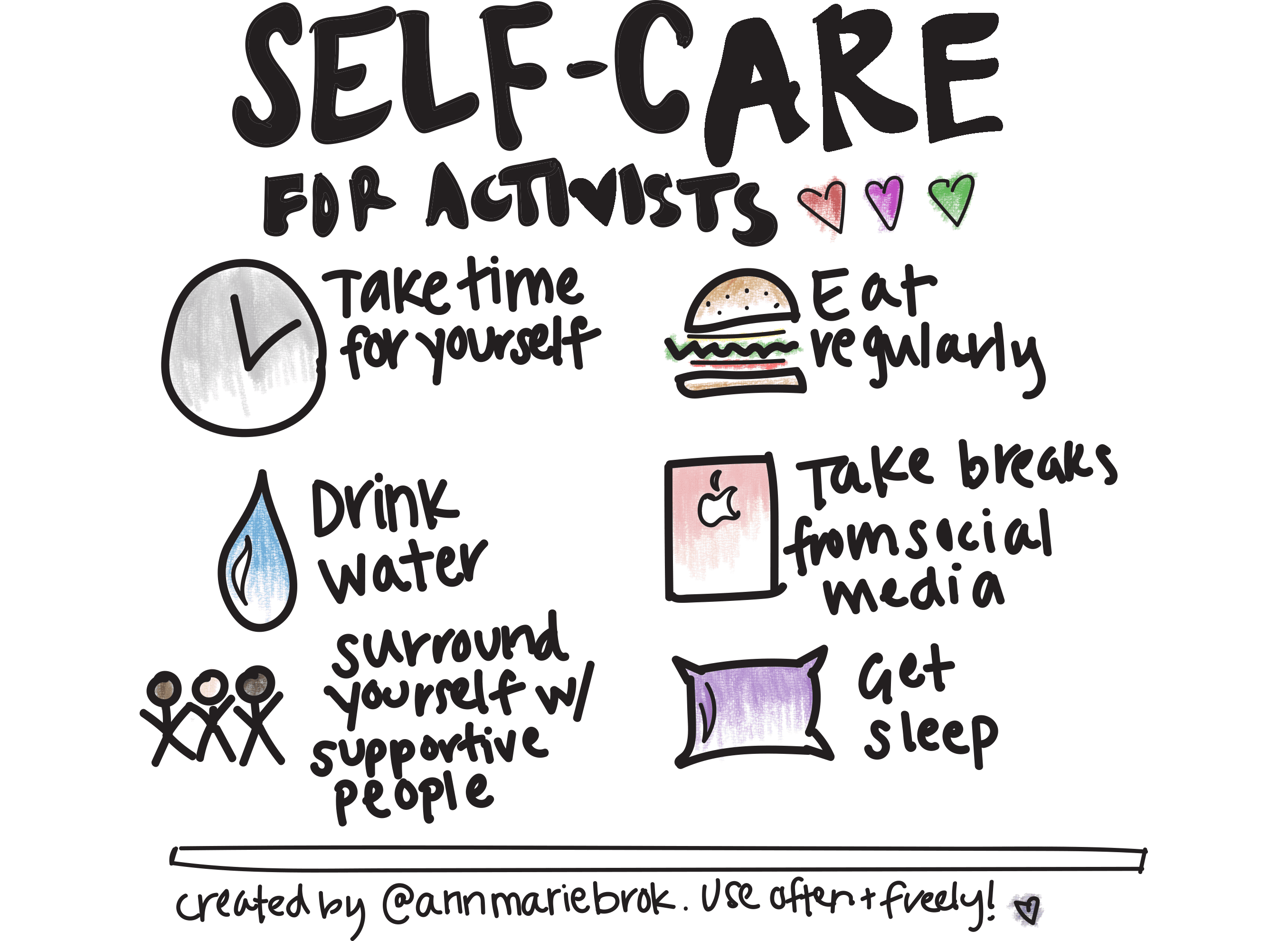 attention to your breath and steps.
attention to your breath and steps. - listen to your fave booty-shaking music: music heals and can uplift us when we really need it. make a playlist of your favorite songs and arm yourself with it for easy access and use. sing out loud and dance like no one’s looking. let the beat and the words fill you and reclaim the energy and joy that fuels your life.
- use a mantra: one of the fastest ways to change is by changing what we think. think of the vision that you have for yourself and imagine that you have done all the work required to be the embodiment of that vision. now, create an “I am” statement, short and sweet, that represents that vision, to create your mantra. repeat your mantra 3 times before any interactions and before any act of leadership throughout the day, each time invoking your vision and grounding yourself in the vision of your desired leadership.
- give + get hugs: humans need human contact. hugs release endorphins and bring content and happiness with each embrace. practice a centered hug (heart to heart hug with 3 synchronized, deep breaths together). please do be in choice and precede hugs by asking for permission (“may I give you a hug”). and remember, no is a very acceptable answer. if you get a no, don’t take it personally but instead celebrate that you and the other person stand in your own power and choice.
- choose your own practice: any practice that allows you to express and release the day’s emotions and events is a good daily practice. integrating 10-30 minutes to practice self-care that aims to reset and fortify should be required work for all of us.
- infinite second chances: you only fail if you don’t try again. give yourself infinite second changes to begin anew if you stumble with your practice(s).
self-care don'ts
trauma creates a riff and disruption in our patterns, somewhat similarly to change work. it’s easy to slip into anesthetizing patterns that seem to offer quick, numbing relief from what aches us deep in our hearts. here are a few things to avoid, especially as daily practices/occurrences:
- alcohol + sugary drinks: alcohol and trauma just don’t mix well together. alcohol contains a high level of sugar that can make you feel physically sick and will disrupt sleep. as much as you can, avoid daily alcohol consumption and other sugary drinks in favor of water.
- seeking targets: hurt people hurt people, yea? it’s part of our make-up to seek to understand when things aren’t right. often, the less practiced and grounded person, will seek to find targets to lay blame on. and the safest targets are our own people. we need to take care of each other right now and blanket attacks on movement leaders, ourselves, and each other only furthers the trauma and hurt.
- isolation: as stated above, humans require human contact. isolation can do serious psychological harm and further deepens and creates trauma. stay connected to people in your community. agree to keep conversations light and positive. meet in person or chat it up on phone/video. daily contact is ideal but definitely don’t go more than a week without connecting with someone you care about.
- intake of news + social media: overload of either will surely bring you down. headlines and news are psychologically crafted to scare us to grab and maintain our attention. too much is certainly toxic and is designed to rob you of your center and ground. each news cycle repeats news from the past cycle. chose a time of day, preferably later in the day, to catch up on the day’s event, limiting your reading/watching to about an hour.
- traumatic times is not the best time to change hearts + minds: avoid engaging with folks who just don’t get it, especially now while the wounds of trauma are heighten. when you are fortified, grounded, and ready, seek those battles out if you so chose. seeking the understanding of folks who require debate and argument will only serve to hurt and traumatize your more.
- anything else: you know all the tricks you employ that do not serve you. you also know all the ways in which you need to be to set yourself up to succeed and stay fortified and fired up for the long fight ahead of us all. know how you set yourself up to fail and know how you set yourself up to succeed. chose and act accordingly.
finally, like most things in life, having a plan and a support system makes achieving our goals more possible. download this worksheet to chart your self-care practice towards a more fortified you.
